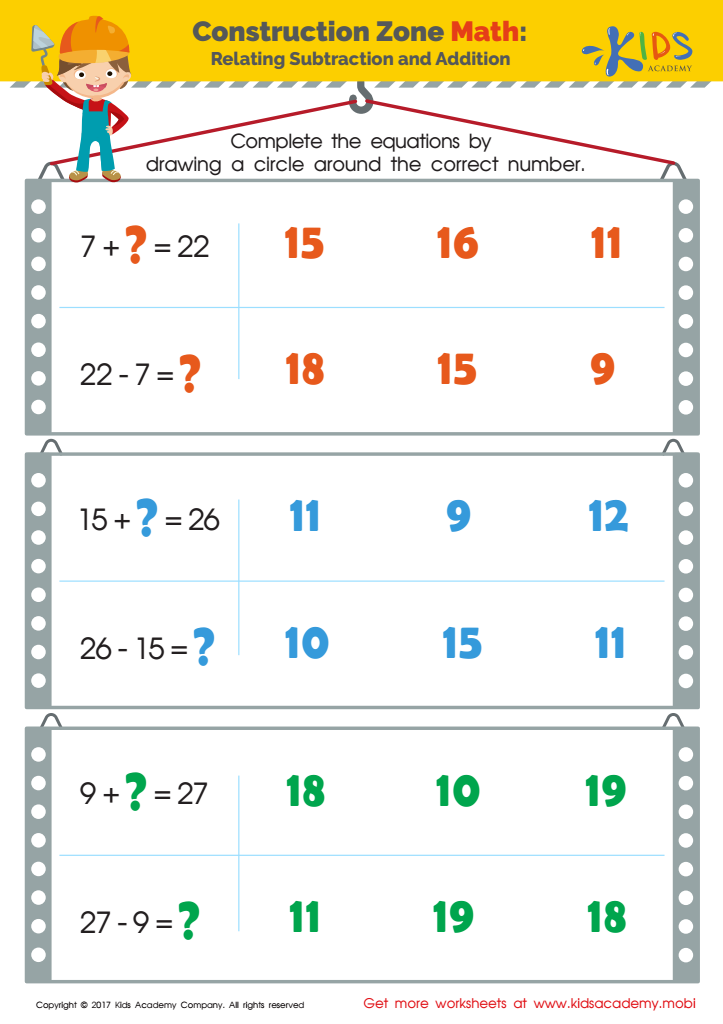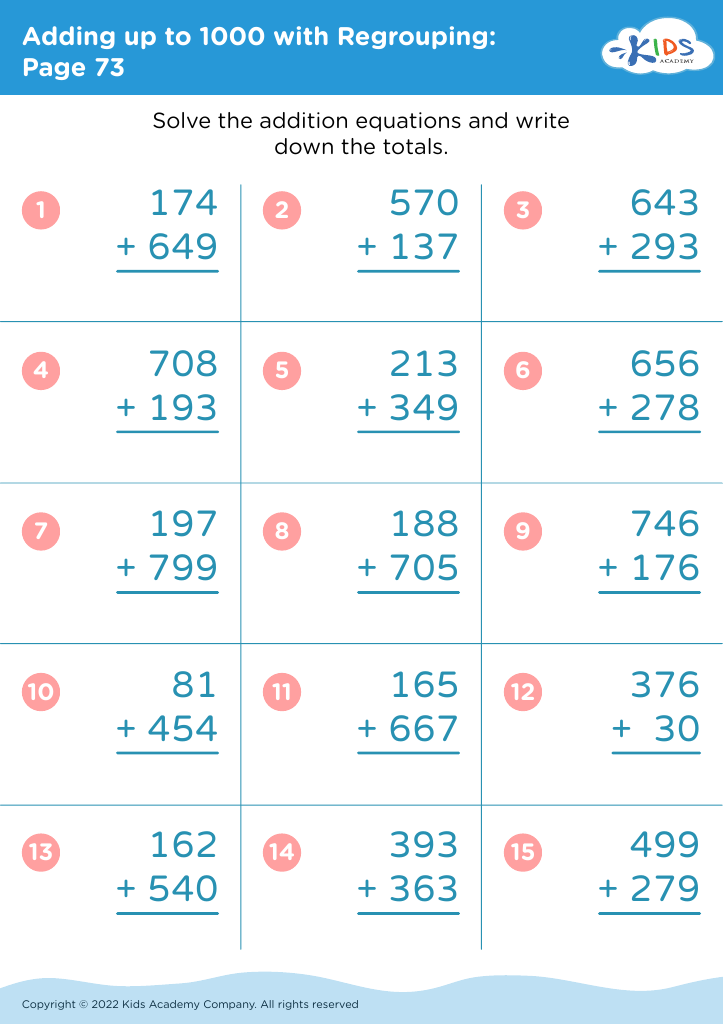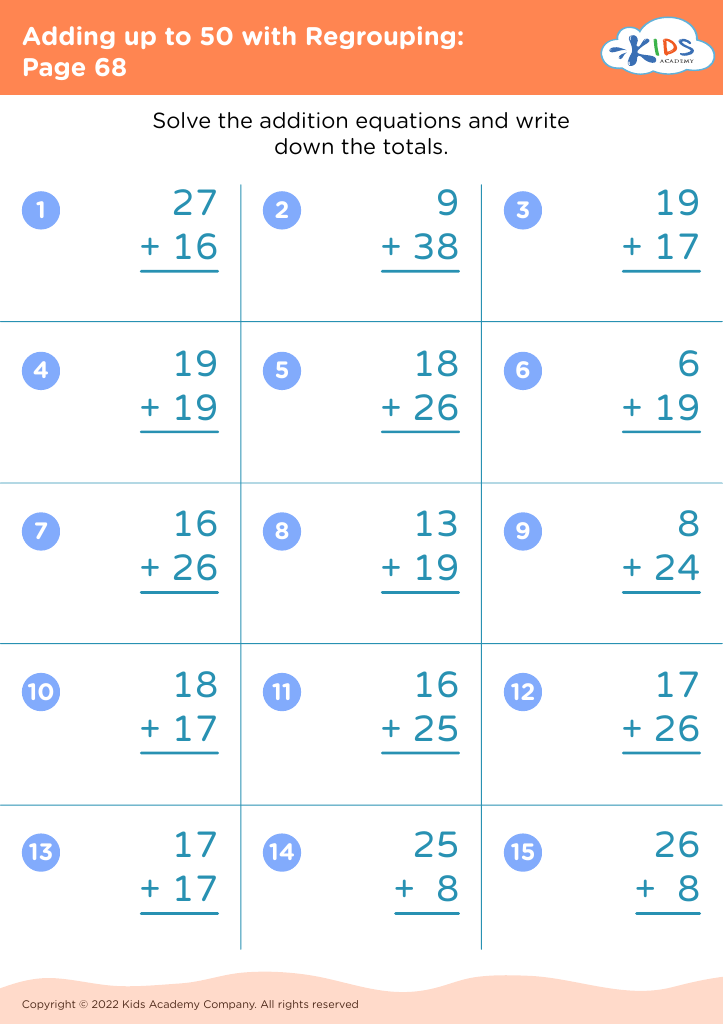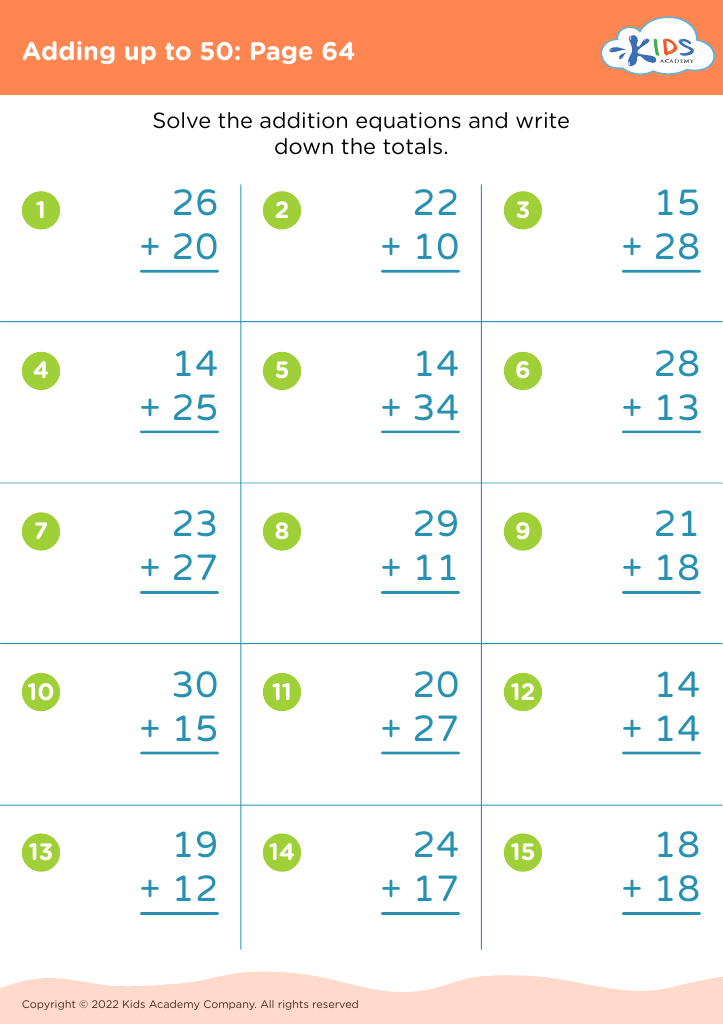Developing logical thinking Addition Worksheets for Ages 6-9
4 filtered results
-
From - To
Transform your child's learning experience with our "Developing Logical Thinking Addition Worksheets for Ages 6-9." These engaging, age-appropriate worksheets are expertly designed to boost logical thinking and enhance addition skills. Packed with fun, interactive exercises, they target crucial learning milestones, encouraging problem-solving and critical thinking. Suitable for classroom use or homeschooling, these resources make math exciting and accessible. Nurture your child's mathematical abilities and watch them thrive with confidence. Perfect for educators and parents dedicated to fostering a love of learning. Explore our collection today and set the foundation for future success in math.


Related Addition and Subtraction Facts Worksheet
Developing logical thinking at an early age is critically important for a child's academic and personal growth. Between the ages of 6-9, children are at a prime stage of cognitive development, making it an ideal time to cultivate essential skills like addition. Mastering addition helps establish a foundation for more complex arithmetic and problem-solving skills that they will need throughout their life.
Logical thinking in mathematical contexts improves children's ability to approach problems systematically and with confidence. It helps them understand the relationship between numbers, enhance their reasoning abilities, and make educated guesses, which are valuable skills beyond math class.
When parents and teachers focus on developing these skills, they are not only helping children master addition but also fostering a growth mindset. This mindset encourages resilience and perseverance when faced with challenging problems, whether in academic pursuits or real-life situations.
Furthermore, competence in math-related tasks boosts a child's self-esteem. As children successfully solve addition problems, they gain confidence and are likely to experience greater enjoyment and less anxiety towards math.
In summary, fostering logical thinking, particularly through exercises like addition, sets up children for long-term success by enhancing their problem-solving capabilities, boosting their confidence, and creating a solid foundation upon which to build more advanced mathematical and logical skills.




 Assign to My Students
Assign to My Students
















